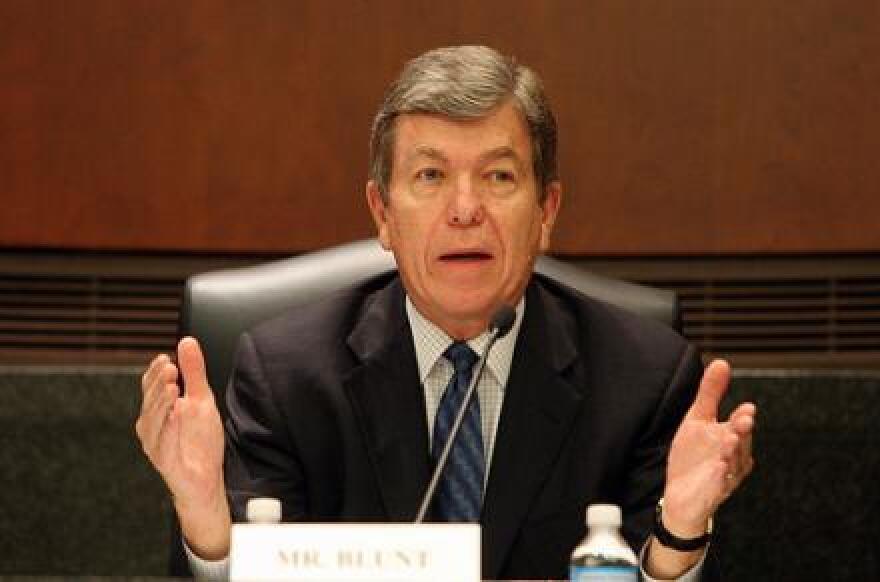Senate Democrats return to Washington Wednesday morning knowing that their time in the majority will expire in just a few weeks.
The lame duck session starts Wednesday and ends before Christmas, with a Thanksgiving holiday in between. The new Congress, with its Senate Republican majority of 52 seats, starts shortly after the New Year. The House remains firmly in Republican hands.
The final weeks of the 113th Congress are not likely to see bipartisan compromise, short of approving legislation to keep the federal government operating past Dec. 11 and possibly considering legislation to give President Barack Obama renewed authorization to use military force against the Islamic State.
Democratic senators in the local delegation say, though, that they won't give up on bills and issues of importance to them according to emails from their offices in response to questions from St. Louis Public Radio.
Sen. Claire McCaskill, D-Mo., is hoping to pass her legislation to curb sexual assaults on college campuses. She also hopes to include similar language in the annual military funding bill to reduce sexual assaults in the military. The lame duck session represents McCaskill's last chance to pass either measure while Democrats control the Senate. Once the 113th session of Congress adjourns, she would have to start at square one and re-introduce her legislation in the new Republican-led 114th Congress. While both measures have bipartisan backing, McCaskill will lose considerable leverage to advance her legislation as a member of the minority.
Sen. Dick Durbin, D-Ill., who is currently the No. 2 Democrat in the Senate, has two pieces of legislation that could come up for consideration in the final weeks of this session. One would reduce prison costs by an estimated $4 billion over 10 years by modernizing nonviolent drug sentencing policies. The measure allows federal judges greater latitude in sentencing individuals convicted of nonviolent drug offenses.
Durbin's other measure would allow states to collect sales taxes from major online retailers just as they do from online retailers with brick-and-mortar stores in their states. The bill would put local brick and mortar retailers on the same footing as major on-line retailers while providing a potential boost to local governments in sales tax revenue.
Speaker John Boehner R-Ohio, reportedly has significant concerns with the measure. Roll Call quotes his spokesman Kevin Smith as saying the measure will not move forward this year. But in the same story, supporters of the measure say they may try to attach their language to other so-called "must pass" legislation.
Talking with reporters after last week’s elections, Sen. Roy Blunt, D-Mo., said that he’s not concerned that Democrats would be able to pass anything controversial or divisive during the lame duck session.
"The lame duck Senate can’t do anything that the lame duck House doesn’t agree with -- and so there’s very little risk of Republicans and Democrats trying to solve as many problems as we can go ahead and solve this year.”

Blunt favors moving forward with discussions on a federal spending plan for the fiscal year that began on the first of last month. It has been at least five years since lawmakers agreed on a complete federal budget plan, opting instead to fund government operations with so-called continuing resolutions including the one that expires on Dec. 11.
Blunt says he hope that Republicans will be able to get federal budgeting back on a timetable that allows for all funding measures to be debated and voted on ahead of the start of the next fiscal year in October 2015.
Republicans have already said they plan to push Obama to support several Republican measures aimed at job creation. They are also likely to move quickly to back passage of the Keystone XL pipeline and to move against what Blunt has called “regulatory overreach” on the part of the president.
While Senate Democrats don’t have much time left before they hand over the gavel, they could take up Obama’s nominee to replace outgoing Attorney General Eric Holder. Loretta Lynch is currently the U.S. attorney for the Eastern District of New York. Several Republican Senators have said that they’d like to see Lynch’s confirmation hearings conducted after the new congressional session begins. What’s not known is whether the current Senate majority leader, Harry Reid, D-Nev., will push to confirm Lynch before this session of Congress goes out of business.
In the House
U.S. Rep. Ann Wagner, R-Ballwin, is a member of House leadership and has repeatedly criticized Senate Democrats for bottling-up "over 380 bills, many of which are bipartisan." Her comments came in an emailed statement following last week's election in which she also said, it's time for the president to work with Congress to pass "pro-growth policies like tax reform, energy independence, patient-centered healthcare, and regulatory reform."
U.S. Rep. Lacy Clay, D-University City, says he won't back away from legislation on pay equity, raising the minimum wage and immigration reform. “All of these items could easily be brought up for a vote in the House, and would likely pass, if the Republican leadership is interested in finally getting something done,” Clay said in an email to St. Louis Public Radio when asked what he’d like to see passed during the lame duck session.
U.S. Rep. Blaine Luetkemeyer, R-St. Elizabeth, says that he backs permanent tax reform, but in the absence of such legislation he favors keeping in place certain tax credits for research and development and small business. Luetkemeyer also wants the Senate to take up an annual funding measure for the military.
Two years ago, the lame duck session of 2012 was unusually productive, but lawmakers were motivated by the so-called fiscal cliff and worked to avoid financial calamity through bipartisan legislation.
The lame duck session of 2014 offers Republicans few incentives to join any grand compromise prior to their taking hold of both gavels on Capitol Hill for the first time in eight years.
The last Republican-led Congress came during the first two years of President George W. Bush's second term, from January 2005, to January 2007.


